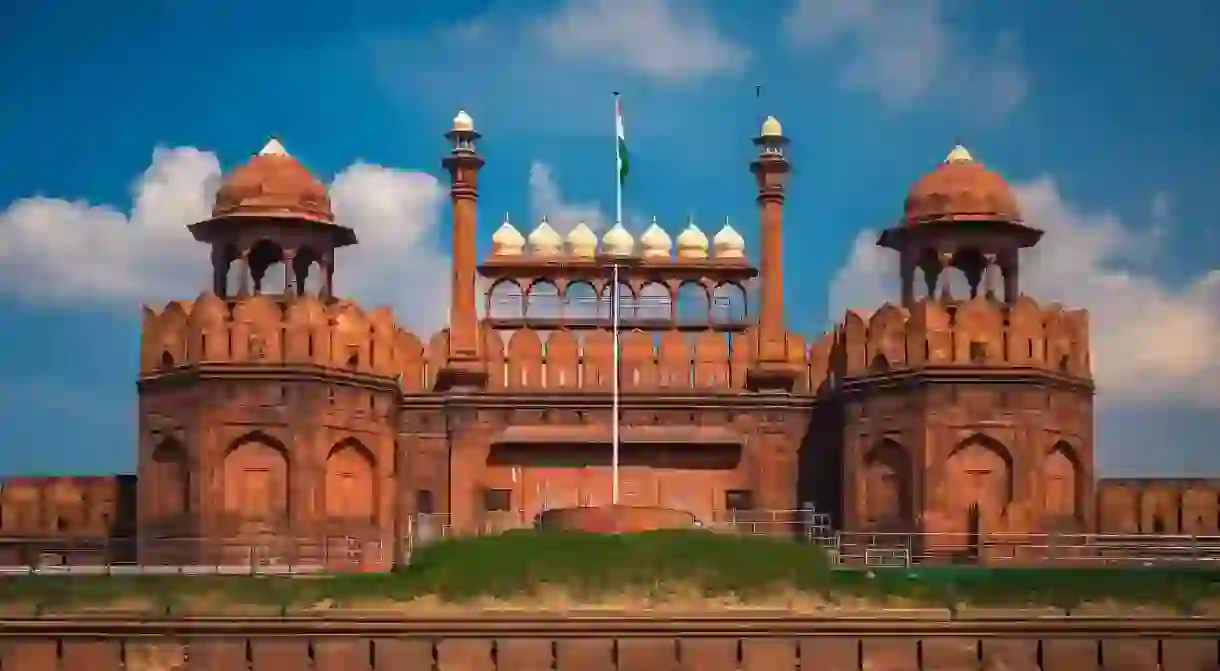The Best Museums To Visit in Delhi

Delhi is a city steeped in history and culture, and the museums dotting India’s capital city are fitting tributes to this rich heritage. Art lovers, history hunters and culture seekers will all find something to suit their tastes in Delhi’s museums. Here’s a list of spots that should be on your itinerary the next time you visit the capital.
National Museum, New Delhi
Museum

The National Museum, New Delhi is a treasure trove of ancient artefacts, some of which date back to the Indus Valley Civilisation. Highlights from the museum’s collection include the Dancing Girl (a bronze statue), the Priest Head and the terracotta image of Mother Goddess. Another fascinating exhibit at the National Museum is the coins collection, where the country’s history is represented through Indian coinage from the sixth century BC onwards. The museum also holds sacred relics of the Buddha, paintings and jewellery.
National Handicrafts and Handlooms Museum
Museum

The National Handicrafts and Handlooms Museum, also known as the National Crafts Museum & Hastkala Academy, showcases long-established crafts from all over the country, including jewellery, pottery, paintings and textiles. The outside space of the museum houses a lovely Village Complex comprising traditional structures from different regions of India. For something to eat, check out Café Lota in this complex – it puts a modern twist on Indian cuisine. If you’d like to buy some Indian crafts, find the group of resident craftsmen showcasing their skills and selling their products in the museum’s courtyard. This quaint venue is a must-visit for those interested in Indian craftsmanship.
Sulabh International Museum of Toilets
Museum

When TIME magazine called it one of the weirdest museums in the world, the Sulabh International Museum of Toilets probably took it as a compliment. The museum traces the history and development of toilets around the globe and even houses a collection of toilet-related poems. The objective behind this unusual idea is to raise awareness about sanitation issues in the country.
National Gandhi Museum
Museum

The National Gandhi Museum is dedicated to the memory of India’s Father of the Nation, Mahatma Gandhi. It was after Gandhi’s death that people began recovering artefacts associated with him. The museum today houses personal belongings such as spectacles and even bodily remains like a couple of his teeth. The Martyrdom Gallery at the museum also has the blood-stained dhoti, shawl and watch worn by Gandhi when he was assassinated in 1948.
National Rail Museum
Museum

The Indian Railways is the fourth-largest railway network in the world and transports approximately 23 million passengers every day. The National Rail Museum in Delhi celebrates the history of the Indian Railways, which has been the primary mode of transport for billions of Indians for over 160 years. On display are rare historical photographs, documents, railway artefacts and train models, while the outdoor area has life-size exhibits.
Shankar’s International Dolls Museum
Museum

Set up by India’s most famous cartoonist, K Shankar Pillai, Shankar’s International Dolls Museum has 6,500 dolls on display, collected from 85 countries worldwide. It was a souvenir doll that Pillai received from a Hungarian envoy that sparked his initial interest in collecting dolls. During one of Pillai’s travelling exhibitions for poor children, he was visited by former prime minister Jawaharlal Nehru and his daughter Indira Gandhi, who suggested opening a permanent museum.
Ghalib Museum
Museum
Mirza Ghalib (1796-1869) is one of the most influential Urdu poets in the world. Known as the last great poet of the Mughal era, Ghalib started composing poems when he was just 11 years old. Part of the Ghalib Academy, the Ghalib Museum pays homage to the 19th-century poet who wrote about unfulfilled love and also captured the twilight years of the Mughal empire in beautiful verses. Along with Ghalib’s poetry, the museum also has paintings by artists such as MF Hussain and Satish Gujral.
Kiran Nadar Museum of Art
Museum

The 3,159-square-metre (34,000-square-foot) museum built by art collector and philanthropist Kiran Nadar is a relatively new establishment, opening in 2010, but has already earned an excellent reputation within the Indian arts circle. The art museum hosts a core collection of 20th-century Indian painters and frequently holds critically acclaimed art, architecture and photography exhibitions by contemporary artists.
Indira Gandhi Memorial Museum
Memorial, Museum

This museum lies inside the former residence of the controversial and only female prime minister, Indira Gandhi. In 1984, she was assassinated by her bodyguards in the garden of this residence. The museum has preserved many of her possessions, including the sari she was wearing when she was shot. A small area in the museum is devoted to her son Rajiv, who was killed by a suicide bomber in 1991.
National Science Centre
Museum

For science enthusiasts or those wanting to learn more about India’s science and technology heritage, the National Science Centre is the place to be. The museum has several exhibition galleries, including the Hall of Nuclear Power, Emerging Technologies Gallery and Fun Science Gallery. The museum is an especially great learning experience for children, with the majority of its visitors being students.













